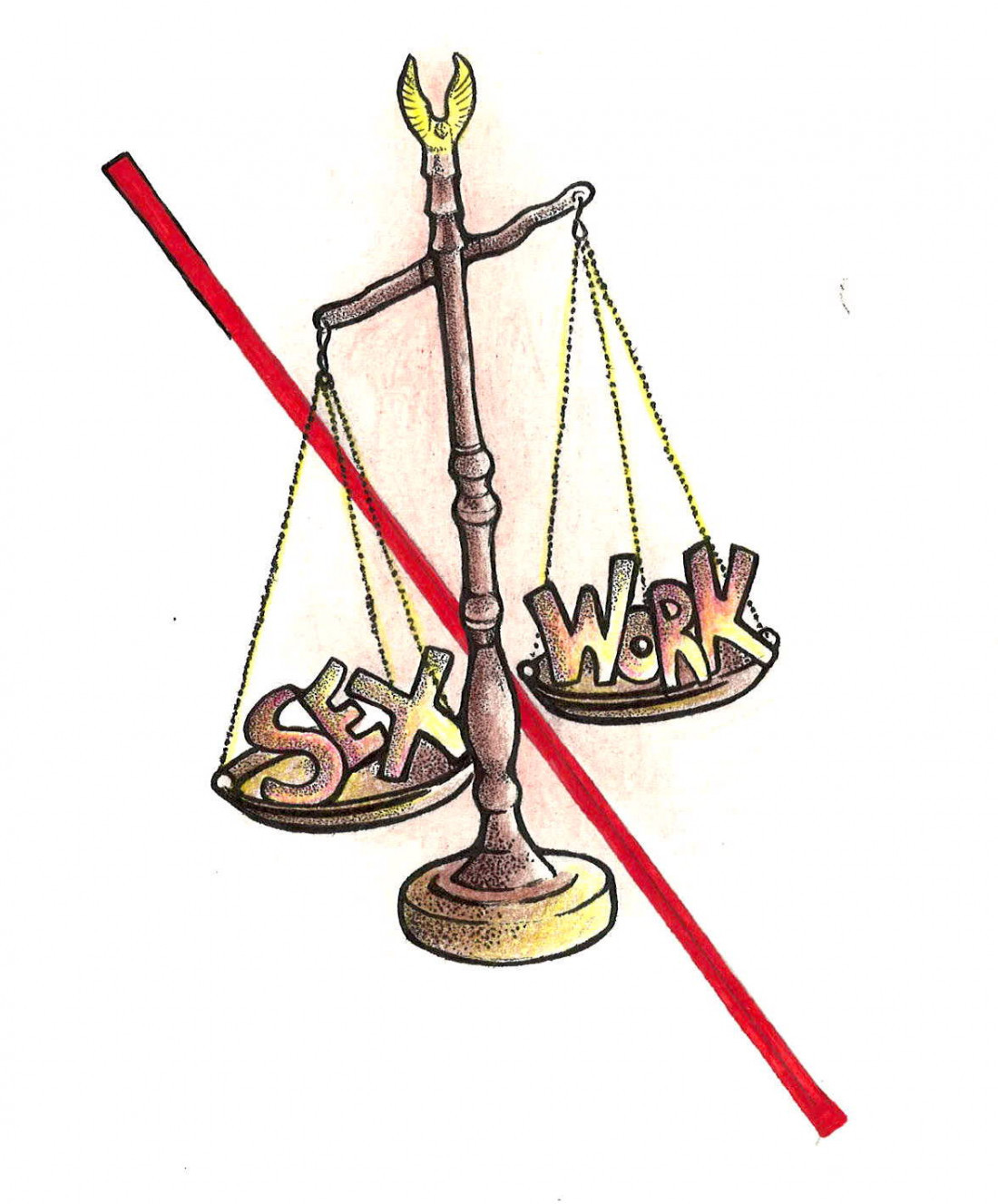Winnipeg needs to protect sex workers
Sex work is real work

Illustration by Gabrielle Funk
Criminalization, discriminatory policing practices, harassment, physical violence and economic precarity are issues sex workers face constantly.
In 2013, laws prohibiting brothels, living on earnings from sex work and communication for the purposes of sex work were deemed unconstitutional by the Supreme Court of Canada. A year later, the Protection of Communities and Exploited Persons Act (PCEPA) was introduced to criminalize those seeking sexual services.
Today, sex work is not illegal, but purchasing sexual services is. This system of asymmetrical criminalization is intended to protect sex workers, but instead forces them to engage in unsafe practices in order to ensure their clients' confidentiality. Despite the shift in legislation in 2013, safety and economic security have never been guaranteed to sex workers in Canada.
To put it this way, imagine if teachers were legally authorized to teach, but students were forbidden by law to attend school. Teachers would be forced to teach illegally and put themselves at risk. This comparison highlights the paradoxical law. When a half-criminalized framework like this is applied to a profession as controversial as sex work, the margnialization workers experience only deepens.
In Winnipeg, the police Counter Exploitation Unit claims to increase the safety of sex workers by tracking and arresting clients, which is not an efficient method. Because of proximity to their clients, sex workers are heavily policed and surveilled.
Additionally, gender-diverse sex workers are highly discriminated against, due to their profession and genders. A report from the Global Network of Sex Work Projects outlines that “between 2008 and 2016, there were nearly 1,000 known murders motivated by transphobic hate globally, 65% of which were perpetrated against sex workers.”
Sex work should not be punitive, as these measures lead to many issues, such as distrust in the police, which can potentially prevent workers from reporting abusive clients.
Moreover, sex workers are ineligible for Employment Insurance, and many lost their income during the COVID-19 pandemic, limiting their access to housing, food, clothes and other basic necessities.
The Sex Workers of Winnipeg Action Coalition organized a relief fund in May to support sex workers who are struggling financially. The objective was to collect $10,000, and so far, $8,843 has been raised on GoFundMe. Such initiatives are essential to protect community members’ human rights and provide the financial assistance that governments have failed to implement.
Winnipeg’s North End neighbourhood is a frequent location of sex workers. This area is home to many Indigenous people who were removed from the colonial urban planning of the city. Police operations in the North End routinely occur with an extreme level of violence and racism, leaving many sex workers feeling disenfranchised and alienated.
Defunding the police is a real demand from Winnipeg citizens who wish to see more money put into community services. This would benefit sex workers by stopping discourses of disposal and criminalization that are routinely proliferated by police.
Sex work should be entirely decriminalized so that sex workers are able to work safely and have a stable income. Sex workers shouldn’t have to live in fear of being arrested or of a legal system that fails to protect them.
Lys Botsula was born in Rouen, France. At 19, she moved to Canada to get a bachelor of arts at the University of Winnipeg, leaving her friends and family in her home country. Fun fact, Lys speaks four languages: French, German, English and Lingala.
Published in Volume 75, Number 09 of The Uniter (November 12, 2020)






